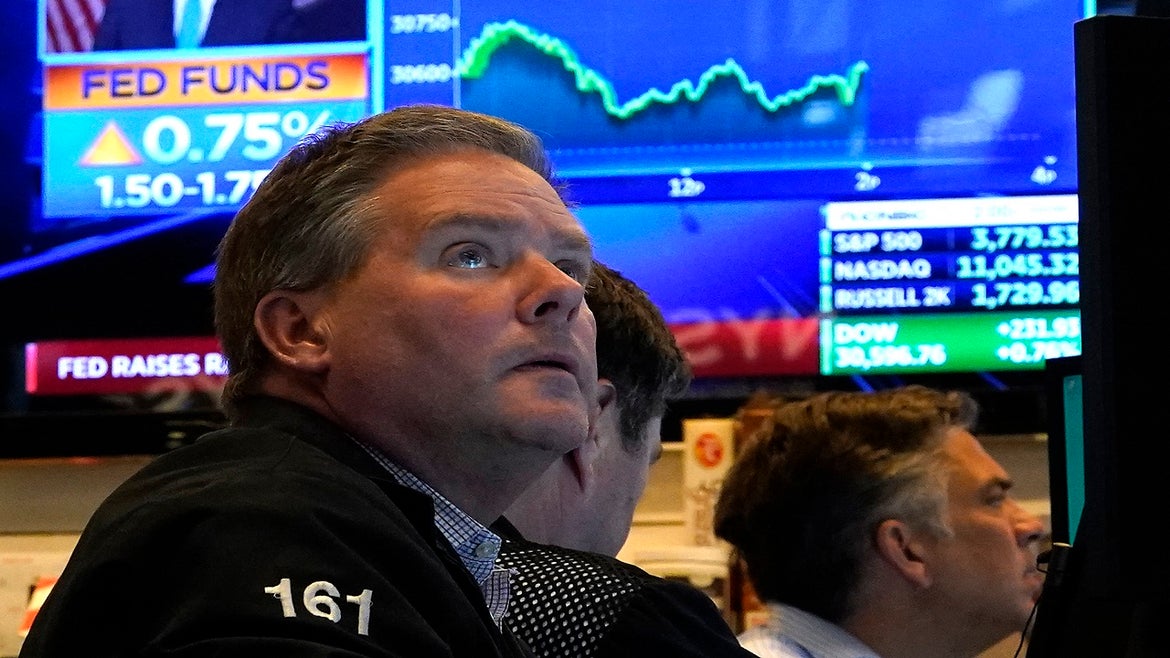The Federal Reserve said the historic interest rate jump was designed to fight higher-than-expected inflation.
In its strongest effort to halt spiraling inflation, the Federal Reserve announced Wednesday it was raising interest rates by a historic three-quarters of a percentage point.
It is the highest singe rate jump since 1994.
"The labor market is extremely tight and inflation is much too high," said Federal Reserve Chair Jerome Powell in a news conference after the historic decision by the nation's central bank.
“We thought that strong action was warranted at this meeting and we delivered on that," Powell said. “It is essential that we bring inflation down, if we are to have a sustained period of strong labor market conditions that benefit all."
The Fed has hinted for weeks it might increase interest rates by half a percentage point, as happened in May. But, a joltingly pessimistic inflation report released last week and the continued invasion of Ukraine by Russian forced the financial officials to take stronger actions, they said.
Not helping matters were increasing signs that the stock market and the American people have little faith in current economic policies.
The interest rate hike will make mortgages, auto loans and many business investments more expensive.
The economic strategy of raising interest rates is designed to chill an overheated financial world by getting consumers to spend less money. In turn, demand for services and goods are expected to go down, which helps lower prices.
It is a risky strategy, and many investors and business owners fret that the effort to lower inflation will instead create a new recession and rounds of layoffs.
“We don’t seek to put people out of work, of course. We never think too many people are working, and fewer people need to have jobs," Powell said.
“But we also think you really cannot have the kind of labor market we want without price stability. We have to go back and establish price stability,” he said.
Prices climbed last month by 8.6%, compared to 2021. Skyrocketing prices for utilities, gas, housing and food have spiked at the highest rate in four decades.
Those increases, some as steep as 50%, have left Americans paying vastly more for every part of their daily lives, from filling their gasoline tanks to paying their electricity bills.
The Fed also said Wednesday that additional hikes in lending rates will likely occur in the coming months, but it did not say by how much or when.






